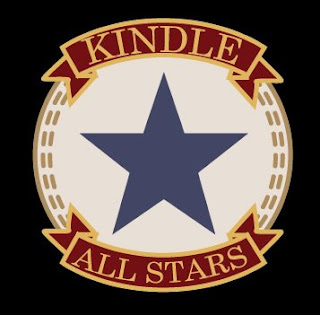Greetings friends and readers! I'm really excited about this week's guest post. Kris Hanson approached me a short while back and asked me to edit his first novel. After reading the first couple of chapters, I knew I couldn't pass it up. Yes, like most firsts, it was a bit rough, but workable, yet the story hooked me right from the beginning.
Immediately, Kris drew me into his world. He was quick to develop characters and set a stage for a grand fantasy adventure. Once we got further into the project, I discovered there was so much more to it. Rather than steal his thunder, I'll let Kris himself tell you more. More about himself, about his process, and about his books.
First thing I want to do is say hello to everyone who is a fan or friend of Laurie's. I am glad I met her, and glad that I had the opportunity to collaborate with her. If anything, I learned so much from her editing that it made me feel like I was back in grade school again. With The Attuning being my first book, I quickly learned form her that I still have to learn about writing. Honestly, my book would not read as well as it does now without her guidance.
Okay, Laurie-praising aside, I wanted to introduce myself since this is my first book and my first guest appearance on her blog. I am Kristofer M. Hanson (Kris, preferably), and I am a 38-year-old proud father of a teen (never said it was fun, just proud) and have been a happily married husband for 18 years. Up until 2014, I proudly served my nation in the United States Air Force for 18.5 years, being honorably and medically retired as a Wounded Warrior and disabled veteran. I currently reside in Georgia, and my wife and I have swapped roles. She is pursuing her career while I maintain life as a house-husband. Having this new job and being retired this early in my life has given me the opportunity to pursue my passion for writing.
Since I was a kid, I have always wanted to write something fantasy-related. I would spend hours writing and crafting my own Dungeons and Dragons adventures for my friends and me to play. I was never brave enough to try and publish them in any of the various magazines that hosts these, but I would absolutely read and devour anything fantasy-related as I grew up. I joined the Air Force in 1996 and was kept pretty busy as I pursued my career there and fought in numerous conflicts like Operations Enduring Freedom and Iraqi Freedom. This whole time I had tried to write, and I kept putting ideas on paper and slowly created the world showcased in The Attuning. The story had been building for so long that when I retired and I sat down to type, it only took me two months to write the book, start to finish.
The Attuning is the culmination of a world over a decade in the making. I wanted to do something unique, different than what I was used to reading in the typical fantasy genre. While R. A. Salvatore and Robert Jordan are my strongest influences, I wanted to create a world where fantasy and science fiction collide. The Attuning itself is heavy on fantasy, and light on science fiction, but this will change as I continue this first trilogy. I asked myself: What would happen if a fantasy-like culture collided head to head with a space-faring culture? I answered this question with The Attuning, and I plan on finishing the answer through the next two books.
Right now, I have finished the plot for the second book in The Athran Saga, and I am about to plot the third before I start writing the second. Finishing the first book was so fulfilling that I plan on keeping at it. So, my advice for the aspiring writer? Just write. No matter what, grab the keyboard or put pen to paper. Even if you feel it is crap, and you only slogged through a page, you are one page closer to being done. Basically, once you start writing, do not stop until you are done. If you choose to do it, do it every day. Disabilities and health issues aside, I could not ever think of doing another job other than writing. I have a story to tell, and I hope readers enjoy that story.
The Attuning released on August 1st, and I hope people will check it out. If you do, I am running a contest for people who read it. The details are on my Facebook page: Kristofer M. Hanson. In summary, the first three people to read my book and review it (thorough review, whether positive or negative) will receive a free autographed copy from me. With that, I want to say thank you for taking the time to read this and I hope I am able to spark your imagination with the world of Athran. Write on.
Note: If you don't use Facebook, you can also contact me through GoodReads at Kristofer M. Hanson or through Twitter @TheKMHanson.
Happy Reading!



















